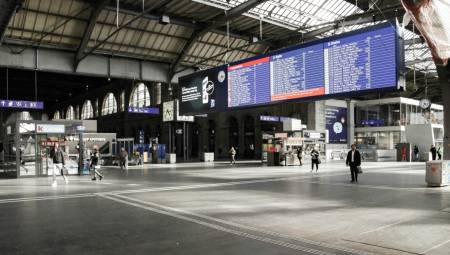 Chile. Ikusi has successfully implemented in Nuevo Pudahuel, the new concession of the international airport of Santiago de Chile, Spider, an integration software tool designed to ensure quality in the management and operation of airport infrastructures, which underpins the contractual relationship between the public owner and the private company in a concession business model.
Chile. Ikusi has successfully implemented in Nuevo Pudahuel, the new concession of the international airport of Santiago de Chile, Spider, an integration software tool designed to ensure quality in the management and operation of airport infrastructures, which underpins the contractual relationship between the public owner and the private company in a concession business model.
With the development of Spider, Ikusi has created the technological framework that responds to this increasingly common management model that implies the need to create a framework of relationship between the public owner and the private consortium that, logically, is subject to compliance with quality parameters that the owner (usually government entities) is obliged to guarantee according to international standards set by organizations such as ACI, ICAO, IATA, etc. that regulate the context in which the airport business and air transport must be developed.
From this perspective, the public owner needs to establish control/audit measures that allow him to validate that the concessionaire company is developing its activity according to the established quality parameters.
Spider, Ikusi's answer to the new airport management model
Spider, through the integration of data from existing systems, monitors KPIs (quality indicators) and compares them with the standards or objectives defined in the concession contract such as waiting times, temperatures, time of luggage arrivals, terminal occupancy, etc.
Spider is an open platform that enables the concessionaire (airport manager) mechanisms for quality improvement through alarms, dashboards, indicator prediction modules and what-if scenario simulation. Likewise, using the same information as a basis, it provides a vision, accessible to the concessionaire/owner, to follow in real time the fulfillment of the indicators established in the contract.
This innovative technological solution, designed by Ikusi, is already operational in Nuevo Pudahuel, the new concession of the international airport of Santiago de Chile, whose public owner is the Chilean Ministry of Public Works, in what constitutes a pioneering fact in public-private collaborations that guarantee continuous improvement and the final benefit of the passenger and taxpayer.















